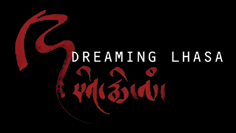JOIN COCHIN FILM SOCIETY FOR A BETTER FILM CULTURE..
12th IFFK7th to 14th December 2007THIRUVANANTHAPURAMApproximately 450 entries in the various sections have been received. Below find the list selected for various sections of the 12th IFFK.
There will be an update of the list on the 7th November 2007, incase some of these films are unavailable.
List of selected films :
IFFK COMPETITION
1. Teeth of Love/Ai Qing de Ya Chi(db) Dir. Zhuang Yuxin (China/Chinese/114 mins/35mm/2007)
2. Suely in the sky/o Cue de Suely Dir. Karim ainouz (Brazil/Portuguese/110 mins/35mm/2007)
3. El Rey de San Gregorio Dir. Alfonso Gazitua (Chile/spanish/35mm/2006)
4. Turtle family/Familia Tortuga(db) Dir. Ruben Imaz (Mexico/spanish/136 mins/35mm/2007)
5. Strangers/Strangers(db) Dir. Erez Tadmor, Guy Nativ (Israel/English,Hebrew,French/85 mins/35mm/2007)
6. 10+4/Das be alaveh Chahar(db) Dir. Mania akbari (Iran/Farsi/77 mins/35mm/2007)
7. XXY/XXY(db) Dir. Lucia Puenzo (Argentina/Spanish/90 mins/35mm/Apr-07)
8. Sleepwalking Land/Terra somnambula(db) Dir. Teressa Prata (Portugal,Mozambique/Portuguese,Xangana/103mins/2006)
9. Casket for hire/Ataul for Rent Dir. Neal buboy Tan (Philipines/Tagalog/93 mins/35mm/2007)
10. Getting Home/Luo Ye Gui Gen Dir. Zhang Yang (Hongkong, China/Chinese/97 mins/35mm/2007)
11. Bliss/Mutluluk Dir. Abdullah Oguz (Turkey/Turkish/105 mins/35mm/2007)
12. Lord! Let the Devil Steal my Soul/Probhu noshto Hoi Jai(db) Dir. Agnidev Chatterjee (India/Bengali/100 mins/35mm/2007)
13. Four Women/Naalu Pennungal Dir. Adoor gopalakrishnan (India/Malayalam/105 mins/35mm/2007)
14. Paradesi/English Dir. P.T. Kunhi muhhammed (India/Malayalam/134 mins/35mm/2007)
Indian Cinema Today1. Doosra/Doosra Dir. Anand Subramaniam (India/Hindi/114 mins/35mm/Dec-06)
2. The Last Lear/The Last Lear Dir. Rituparno Ghosh (English/122 mins/35mm/35mm/Aug-07)
3. Manorama-Six Feet under/ Manorama-Six Feet under Dir. Navdeep Singh (Hindi/35mm/jan-07)
4. Restaurant/Restaurant Dir. Sachin Kundalkar (Marathi/130 mins/35mm/Nov 06)
5. Zero Zone/Shoonya Dir. Arindam Mitra (Hindi/101 mins/35mm/6-Oct)
6. 68 pages/68 pages Dir. Sridhar Rangayan (India/Hindi/92 mins/digital/May-07)
7. Staying Alive Dir. Anant Mahadevan (India/Hindi/35mm/Jun-07)
New Malayalam Cinema
1. AKG/AKG Dir. Shaji N. Karun (India/Malayalam/35mm/Aug-07)
2. Kayyoppu/Kayyoppu Dir. Ranjith (India/Malayalam/97 mins/35mm/Oct-06)
3. Notebook/Notebook Dir. Rosshan Andrews (India/Malayalam/145 mins/35mm/Dec-06)
4. The Sea within/Ore kadal Dir. Shyamaprasad (India/Malayalam/120 mins/35mm/Aug-07)
5. Rathri Mazha Dir. Lenin Rajendran (India/Malayalam/110mins/35mm/Jan-07)
6. Thakarachenda/Thakarachenda Dir. Avira rebecca (India/Malayalam/99mins/35mm/Dec-06)
7. Thaniye Dir. Babu Thiruvalla (India/Malayalam/35mm/Dec-06)
8. Unni/Unni Dir. Murali Nair (India, france/Malayalam/82 mins/1.85/mono optical/Jan-07)
Short Films and Documentaries
1. Portrait of the Artist as his muse/Portrait of the Artist as his muse Dir. Etienne Desrosiers Canada (English/9 mins/35mm/2007)2. The Dance of the enchantress/La Danse de l'enchanteresse Dir. Adoor Gopalakrishnan, Brigitte Chataignier France (Malayalam/75 mins/35mm/2007)3. Doormat/Doormat Dir. Christy Garland, Susan Armstrong Canada (Malayalam, english/ 65 mins/2006)4. The Lesson/The lesson Dir. Punam Kumar gill Canada (Punjabi/12 mins/35mm/2007)
5. Before the Brush dropped/Before the Brush dropped Dir. Vinod Mankara India (English/31 mins/35mm/2007)
6. A Song for argyris/Ein Lied fur Argyris Dir. Stephen Haupt Switzerland (Swiss,german french greek/105 mins/35mm/2006)
7. Total Denial Dir. Milena Kaneva
8. Waiting for Ben Dir. Norma Marcos France
9. Angola/Angola Dir. Richard Paklepa
10. Triumph/Triumph Dir. Subhash K.R. India (20 mins)
11. In the Shadows/Eth Ekia Dir. Dimitris Apostolou Greece (Greek/15mins)
12. Showtime/Archizi Dir. Theophilos Papastylianos Greece (Greek/16 mins/35mm/2006)
13. Red or Grey/ Dir. Samaneh Momtazmand Iran (Farsi/3 mins/35mm/2007)
14. Coffee Break/Kaffepausen Dir. Johannes Pico Geerdsen Denmark (Danish/10 mins/35mm/2006)
15. Occupations/occupations Dir. Lars von trier Denmark (Danish/3 mins/35mm/2006)
16. A Reunion/Man Nam Dir. Hong sung hoon South Korea (Korean/20 mins/35mm/2007)
17. Show me daddy'd ultra power Dir. Choim min seok South Korea (Korean/20 mins/35mm/2007)
18. The french lieutenant's woman Dir. Baek Seung Bin South Korea (Korean/20 mins/35mm/2007)
19. Pig and shakespeare/Pig and shakespeare Dir. Geon Kim South Korea (Korean/22 mins/35mm/2007)
20. Firn/Firn Dir. Axel Koenzen Germany (German/39 mins/35mm/2006)
21. Wing the fish that talked back/Wing the fish that talked back Dir. Ricky Rijneke Netherlands (Cantonese,mandorin/13 mins/35mm/2007)22. The Parabolic dish/La Parabolica Dir. Xavi Sala Spain (Spanish/12 mins/35mm/2007)
23. The song of the cricket/El Canto del grillo Dir. Danny campos Spain (Spanish/18 mins/35mm/2007)24. Where is estel?/Where is estel? Dir. Jared Katsiane USA (English/3 mins/16mm/2007)25. Orloj/Orloj Dir. Jeane Rektorik Switzerland (French/14 mins/35mm/2007)26. I want to be a pilot/I want to be a pilot Dir. Diego Quemada diez Spain, mexico, Kenya (English/12 mins/35mm/2006)
27. Nasija/Nasija Spain (11 mins)
28. The end/Andhiyum Dir. Jacob Varghese India (Malayalam/14 mins/35mm/2006)
29. Eels/Am im Schadel Dir. Martin Rahmlow Germany (German/18 mins/35mm/2006)
30. Before and After kissing Maria/antes y depres de besar o Maria Dir. Ramon alos Spain (Spanish/7 mins/35mm/2006)
31. Tickets Please/Boletos Por favor Spain (spanish/14 mins/35mm/2007)
32 Nine minutes to nirvana Dir. Naren multani India (English/11 mins/35mm/2007)
33. The sand/Manal Dir. Tony sukumar India (Malayalam/17 mins/35mm/2007)34. Fin/End Mexico (spanish/10 mins/35mm/2007)35. End of the line Mexico (spanish/10 mins/35mm/2007)36. Masculine Iridiscence Mexico (spanish/10 mins/35mm/2007)
37. Little girl waiting Mexico (spanish/10 mins/35mm/2007)38. If eyes can't see Mexico (spanish/10 mins/35mm/2007)39. Distinguishing Features Mexico (spanish/10 mins/35mm/2007)40. The Groundwork/Kaliyorukkam Dir. S sunil India (Malayalam/46 mins/35mm/2007)41. Great Expectations/Grosse Erwartungen Dir. Pascal Leister Germany (German/7 mins/35mm/2007)42. All about it/ Mexico (spanish/10 mins/35mm/2007)
43.Remembrance of things present/Remembrance of things present Dir. Chandra siddan India, Canada (English , Kannada/80 mins)44. the city of photographers/La Ciudad de Los Photographos Dir. Sebastien Moleno Chile (Spanish/80 mins/35mm/2006)
45. Nomads TX/Nomadak Tx Dir. Raul de la fuente Spain (Basque, Spanish, gujarati, Tsaatan, bereber, french, Sahuraui, suomi, english/86 mins/2006)
46. Loving Maradona/Amando a Maradona Dir. Javier Vazquez Argentina (Spanish/75 mins/2006)
47. Marcela/Marcela Dir. Helena Trestikova Czech Republic (82 mins/35mm/2007)
48. Kahloucha/Kahloucha Dir. Nejib Bekadhi Tunisia
Student films
1. Seashore/Theeram Dir. Sanju Surendran India (Malayalam/20 mins/35mm/2007)
2. My Best friend Dir. Swaroop Srinivas India
3. Karna motcham/Son of Sun is strongest Dir. S. Murali Manohar India (Tamil/14 mins/35mm/2007)
4. The lost rainbow/Harvalele Indradhanushaya Dir. Dhiraj Meshram India (Marathi/22 mins/35mm/2007)
5. Echoes of silence Dir. Reema borah India (English, Khasi/24 mins/35mm/2007)
6. The fantastic life of Mr. Tripathi Dir. Amit raj India (Hindi/22 mins/35mm/2007)
7. Red Shoes/lal juto Dir. Shweta Merchant India (Bengali/23 mins/35mm/2007)
8. Chinese Whispers/ Dir. Raka Dutta India (28 mins/35mm/2007)


